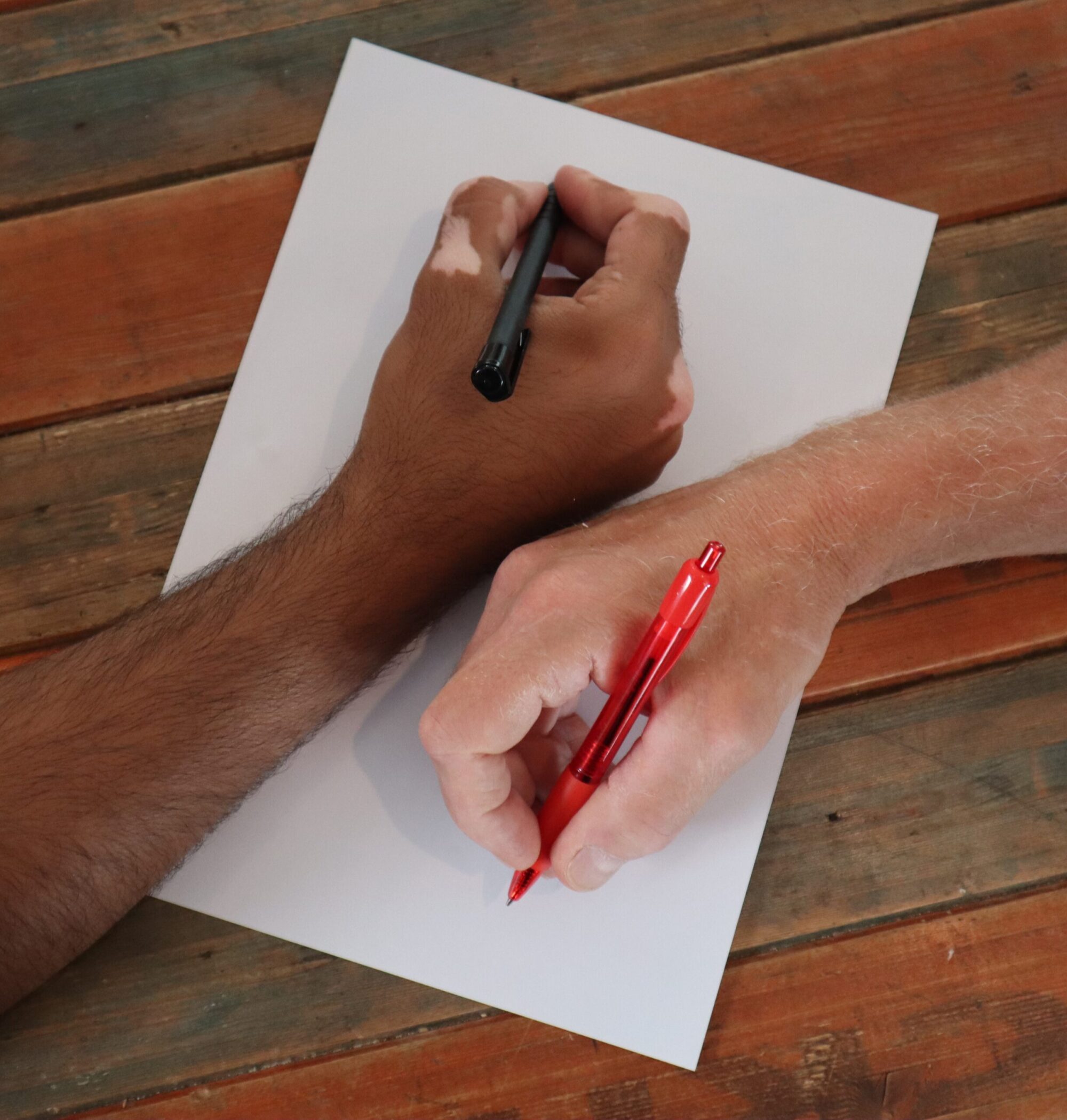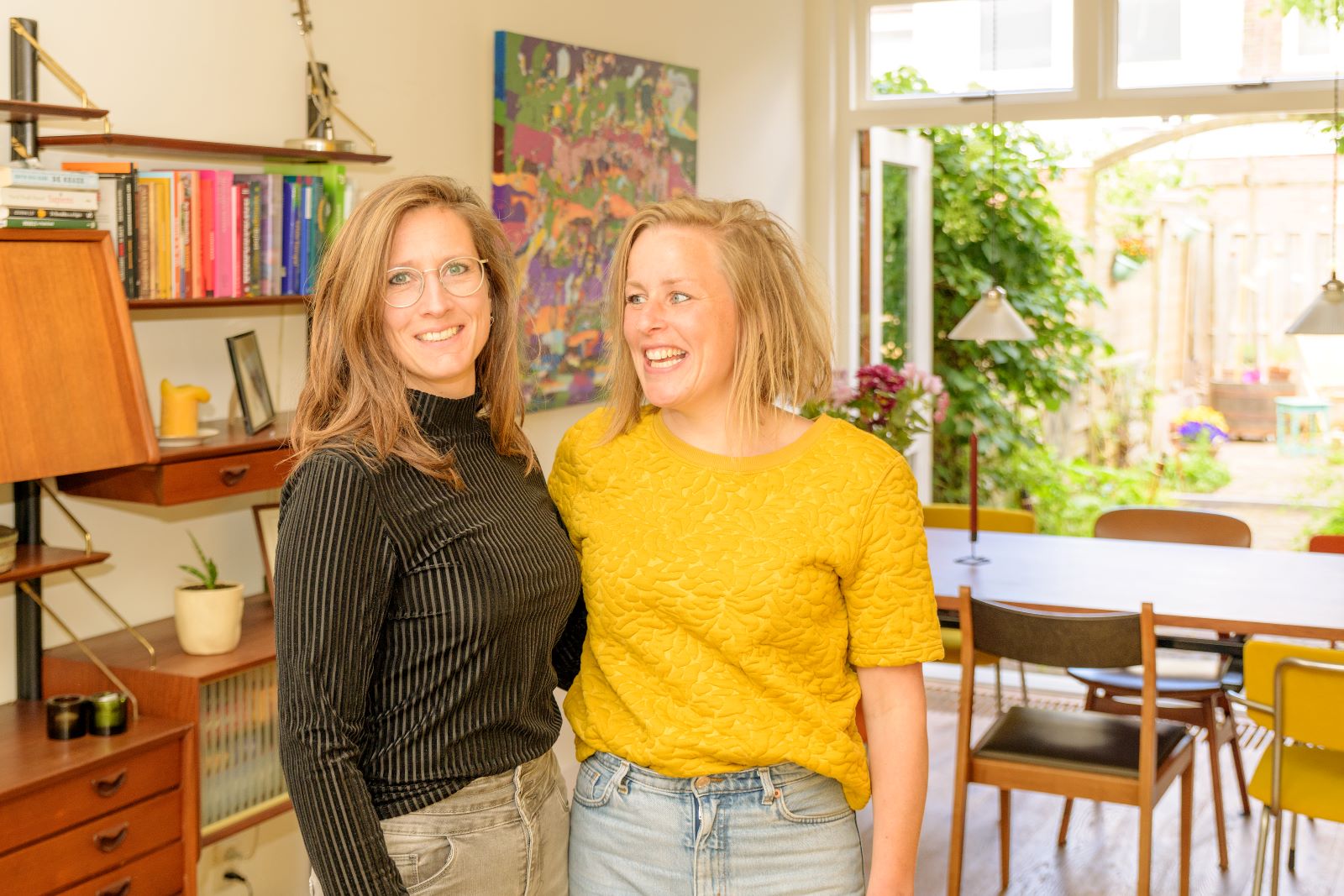Week 18: Close to home

In our blog series ‘Close to home’ Yemeni refugee Ali* and host Robert share their experiences living together. There will be weekly posts about the ups and downs, difficulties, highlights and surprises.
*not his real name.
Robert is many things, dad, dog-lover, Director of Takecarebnb, an organisation that matches newcomers to host families. Every day, he convinces Dutch host families to offer temporary places of stays for refugees with a status. Now that his youngest daughter has passed her final exams, it’s time to put his words into action.
Ali is a refugee from Yemen with big dreams. He loves poetry, chess and can solve a Rubik’s cube in less than a minute. He spent time studying and working in India when it became clear he could not return to Yemen. When travelling to Europe as part of a conference, he visited The Netherlands and knew he wanted to stay.
Ali: Inburgering is a term that all refugees are familiar with, but what exactly does it mean? Basic Dutch and Basic Civic Integration (Participatieverklaring). Is that sufficient to integrate into society? Is that enough to accomplish the big goal and be financially independent and build your social network? It’s important to learn how to sort waste (plastic, paper, and green), but isn’t it more important to understand the big picture?
To different people, integration may mean different things. For me, integration does not entail learning basic Dutch or enrolling in a participatieverklaring course; rather, it entails learning how to be open-minded and accepting, as well as understanding how society thinks and expects from us. Understanding cultural differences and how to avoid misinterpretation and I am confident that we can achieve all of this and much more starting from the hosting families.
Robert: We all read about refugees crossing the seas in ramshackle boats or trying to cross the Belarus-Polish border. We have opinions about integration, the need to look for work and to adapt to our standards. By hosting Ali I came to know the person behind the issues. It was his friends at that border. I was confronted with the fact that it was impossible for him to meet his parents or celebrate his sister’s birthday. I learned more about Islam and Arabic culture, from religion to marriage and from politics to food. I also learned more about myself and us Dutch: that our way is not necessarily the best way and how hard it can be to understand – let alone accept – an alternative way.
Robert (cont.): Ali and I shared a house, my house, for six months. He left two weeks ago and I am getting used to not having dinner together or sharing work stories. Looking back it was an emotional journey that we made together.
Ali: There were many lessons I learned during my stay with Robert that cannot be listed in a blog, but here are a few: It could be a new eating habit or developing a healthy lifestyle, dealing with problems, letting go of the past and focusing on the present, or even learning to act rather than complain. How to accept being happy and sad at the same time, as well as accepting that the integration process is a lifetime goal that cannot be accomplished in a single night.
Robert: A reflection on privacy. Yes I did compromise on that. I had to adapt, sometimes playing music we would both like or cooking a real meal for two instead of just having a cheese sandwich. But Ali had to make much more of an effort: he was my guest so of course he was more careful, more eager to do the right thing. To be friendly, quiet and clean up. So, my ‘sacrifices’ were peanuts.
First and foremost I came to know a very smart, sensitive and communicative person who really opened up to me and shared his doubts and his dreams. Who struggled to find his way between two very different cultures and aimed to combine the best of both these worlds. Who time and again recovered from setbacks (a friend being put in jail in Yemen, a visa for the US being denied, a woman being dishonest about her intentions). I came to respect him as a very strong and determined man. Ali, I am convinced that you will have a very successful career and that you will contribute to Dutch society. However, I am not sure that you will find the right partner. How can one be sure at all, but besides that: will a traditional bride from Yemen make you happy or rather an independent-minded Dutch? But if you do, I hope the two of you will have children because you will be a great father.
Ali: I am a firm believer that every refugee should be given the opportunity to live with a Dutch family in order to begin the process of integration.
Robert, you have been an incredibly gracious host, and I can not thank you enough, my friend 🙂

